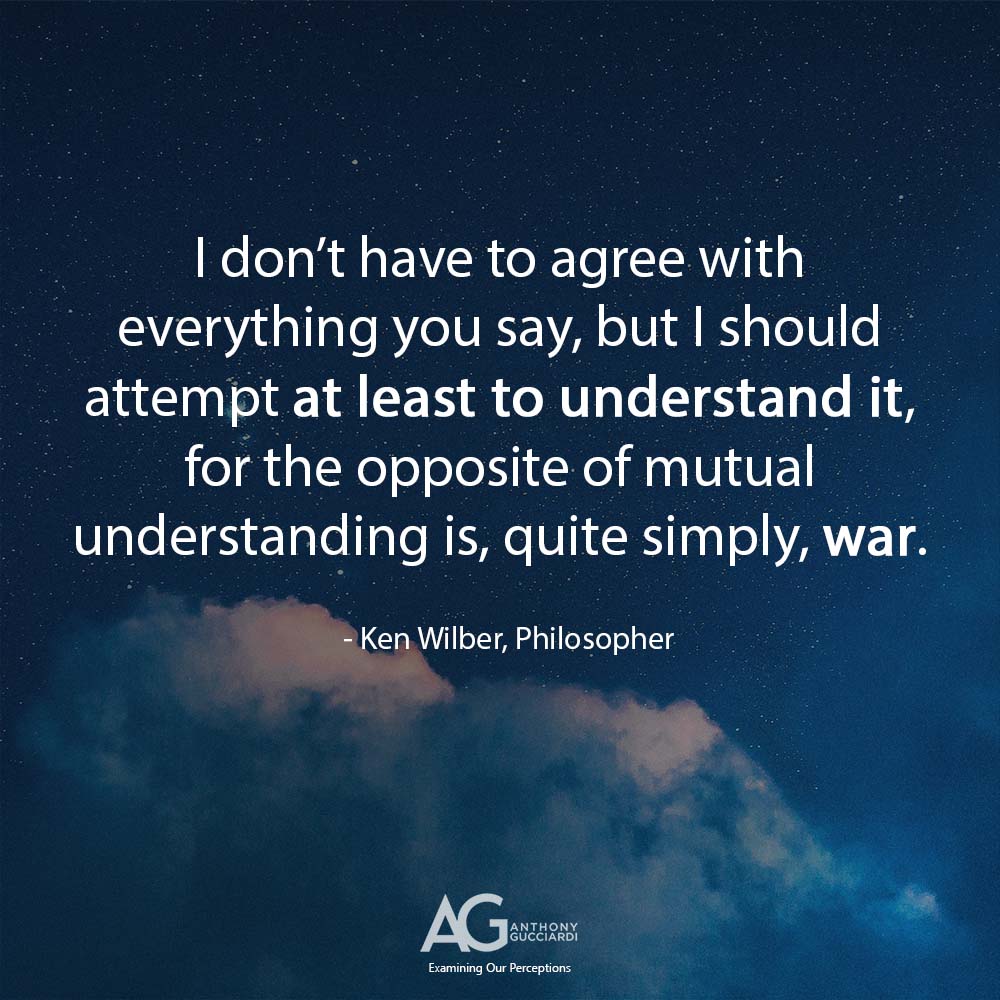
“I don’t have to agree with everything you say, but I should attempt at least to understand it, for the opposite of mutual understanding is, quite simply, war.” – Ken Wilber, philosopher and the the most widely translated academic writer in America.
Just as Einstein invoked Understanding as the prescription for lasting peace with the statement that “peace cannot be kept by force; it can only be achieved by understanding,” Wilber invites us to go deeper.
With the thick energy of conflict permeating our collective space, perhaps it is a fruitful time to examine the implications of conflict not only geopolitically such as in Ukraine but intellectually and ideologically; conflict is all around us today in numerous spheres, and Wilber invites us to step into a closer examination.
When we do not achieve some form of mutual ‘Understanding’ Wilber reveals that we have conflict as a result. But instead of writing us a ‘nocebo’ of doom, Wilber includes the theoretical cure for the diagnosis.
Is this the same panacea of Understanding that so many theorists have spoken of? Are Einstein, Wilber, Hegel, Hall, the ancient Greek philosophers, and Egyptian traditions all referring to the same Understanding that we are in such desperate need of? Or perhaps the intentions and meanings behind the words vary.
Perhaps the ‘Door’ to Understanding is connection. Whether you prefer to view that as connection to one another, connection to the ‘whole’ of our web of life, connection to the divine, connection through mutual ideology, or connection by the mere consideration that we all have human bodies and are on this speeding rock together.
The message nonetheless seems, to me, to suggest that through expanding past our rooted-in positions in which we only see what we have considered as ‘acceptable’ and ‘true’, we may find some mutual resolution; perhaps this is the realization that the ‘boundaries’ that separate us are not such high concrete walls, but heavily-fortified perceptions about one another that we have subscribed to.
“A human being is a part of the whole called by us universe, a part limited in time and space. He experiences himself, his thoughts and feeling as something separated from the rest, a kind of optical delusion of his consciousness. This delusion is a kind of prison for us, restricting us to our personal desires and to affection for a few persons nearest to us. Our task must be to free ourselves from this prison by widening our circle of compassion to embrace all living creatures and the whole of nature in its beauty.” – Albert Einstein
Additional Reading:
Sex, Ecology, Spirituality: The Spirit of Evolution




